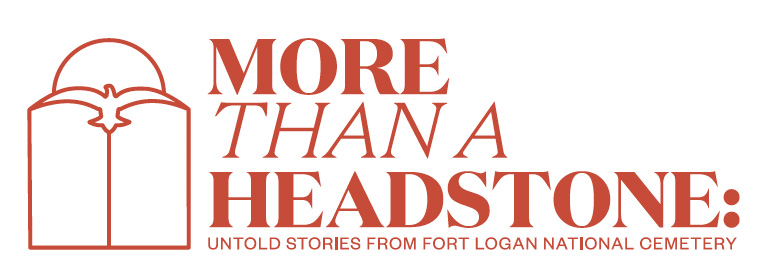A Woman of Many Firsts
By Sophie Gordon
Dorothy L. Starbuck
October 17, 1917 - July 19, 1996
Dorothy Starbuck, Veterans Benefits Administration Tribute, https://m.facebook.com/VeteransBenefits/photos/a.383962233415/10159009769728416/?type=3, accessed September 5, 2021.
Dorothy L. Starbuck was born on October 17, 1917, in Denver, Colorado to Cyril Starbuck and Catherine Hanson.[1] She received a bachelor’s degree in Journalism from Loretto Heights College in Denver and did graduate work at the University of Denver.[2] She was one of eleven children in her family, and four of her siblings also served their country during World War II. As Dorothy said, “my family was lucky; we all got home in one piece.”[3]
In 1942, she joined the Women’s Army Auxiliary Corps (WAAC) and was stationed at Lowry Army Airfield in Colorado. There she acted as a commanding officer to a company of photo analysts. The creation of WAAC was a defining moment in gender roles in the United States. Women worked in hundreds of fields, like military intelligence and cryptography. Yet even then, the job of women in the service was to “free a man to fight.” By the end of the war, 140,000 women served in the Women’s Army Corps. The brave actions of these women brought in new social and economic changes that were destined to change the role of women in American society.[4]
When she was 27, Dorothy was assigned to the London Headquarters of General Dwight Eisenhower. She is quoted as saying, “I had top secret clearance, and controlled every document, from every military service that came in to ETUSA [European Theater of Operations, US Army] that included every detail of Operation Overlord.” In her own words, another routine part of her job was “to hand carry ‘eyes only’ top secret messages to Patton, Gen. Omar Bradley, and any other top commander who had to be kept informed.”[5]
Later on, Dorothy was stationed at Paris, where she was involved in the secret plan to get Allied troops to Berlin.[6] Following the war, Dorothy worked for the U.S. Veterans Administration. She was promoted to Chief Benefits Director of the Department of Veteran Benefits in 1977. In this position, Dorothy oversaw a budget of $15 billion in 1984. When she was asked by a reporter if she thought it was about time a woman was put in charge of the agency she replied, “What makes you think that this one isn’t?” She developed a reputation for being blunt and speaking her mind. When she found out that some female soldiers had been prisoners in Bataan and Corregidor in World War II, she personally got in contact with all 60 of them, and explained what benefits were available to them. Later, she even raised funds to bring them to Washington for a reunion.[7]
Dorothy also received the AMVETS Silver Helmet Civil Servant-of-the-Year Award for outstanding accomplishment in the fields of Americanism, defense, rehabilitation, congressional and civil service.[8] Dorothy passed away on July 19th, 1996.











